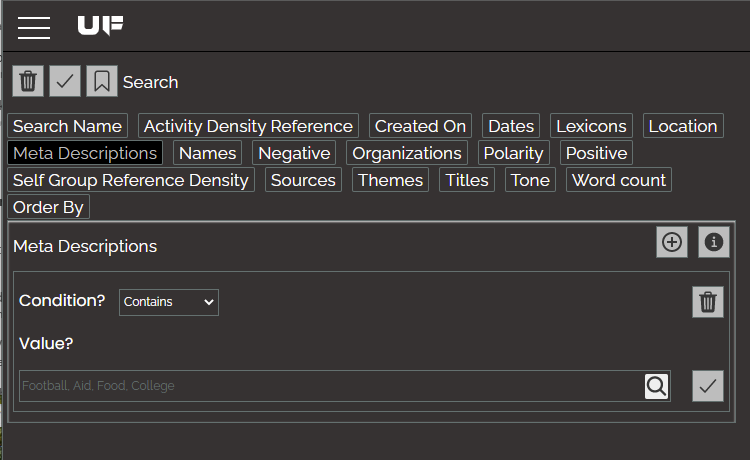Why try to write a new search engine? Why do the this? Isn’t the existing model of a textbox with a bunch of inductive reasoning behind it good enough? What makes the Unfiltered Search Engine better? Why should I identify and populate the appropriate algorithms for precise data retrieval? Lots of good questions here. Let’s jump right in…
This post will cover the following areas:
[ngg src=”galleries” display=”basic_thumbnail” thumbnail_crop=”0″]
The large size & rapid growth of the internet along with the complex diversity of the subject matter demands a new approach for search engine behavior. For example: how does one search for results for business or finance that are related to politics or education? How do we find results for science and religion and see the relationships of the two in the data? How to we easily set up a data feed to keep us abreast with how politics is effecting healthcare?
The massive complexity of trying to figure out what someone is searching for based off a string requires a number of assumptions to be made to limit state. Without these assumptions the search would return such a large amount of data it would be useless to the user. This problem requires a new approach to solve.
Unfiltered Solution
The Unfiltered Search Engine addresses this problem by giving the user much greater control over the search criteria. Instead of a text box the user can now search against any number of the following data points:
| Geo Location | Tone |
| Positive Score | Negative Score |
| Word Count | Created On |
| Organization | Title |
| Polarity | Source |
| Active Reference Density | Self-Group Reference Density |
| Theme | Lexicon |
| Date | Meta Description |
Many of these data points also have where in the result the theme, location, name, date, etc was found. This allows the user to search for data where X person was at Y location and this information is contained in the first 100 words of the story. This ability to quickly and easily refine searches now changes the domain of control of the information. You can easily stay on top of data feeds that you setup and refine. The data feeds can be saved and shared with other users in the Unfiltered techosphere.
Here is a screen shot of the existing input parameters of the Unfiltered Search Engine. This ability specify a much more detailed input will allow for a much better response without using inductive reasoning & guessing about what you are looking for.

This processing of the metadata for each URL allows the ability to search for financial stories that have a political lexicon of less than 10 percent, or look for results where a business theme is found in the first 100 words that has a financial lexicon that is greater than 15 percent. Results for a medical lexicon that has a business theme off-set of greater than 500 can easily be identified and the search saved as an individual data feed or grouped with others.
Possibilities & Tools
All of this is possible because the power of computing continues to grow. This rapid growth of processing speed, coupled with the decrease in storage costs allows a number of Artificial Intelligence algorithms to process each URL. This data is made available to the end user to search against.
This allows for more and more of the process of refining the search be completed by the user and not by assumptions of the provider. Businesses can now easily target & monitor the financial events of prospective organizations. Political events, terror and pandemics can be shown on maps. Searches that relate science and religion can be created and monitored.
One of the very powerful tools Unfiltered brings to the forefront is the ability to search for stories that have positive emotional scores. The existing news cycle is full of fear and negativity. However, there is a lot of wonderful and beautiful things happening all over the world right now. Existing search engines do not allow for the retrieval of data based off its positivity. Unfiltered has solved this. You can simply search for all the positive stories happening in your region, country, state or radius.
Your Role in the Solution
The finite state is deliberately vast. Unfiltered wants you to dig into the data that surrounds us and create your own narrative. Search for what is going on in the business world regarding the price of health care, or terrorist events in London, or find positive things going on in your community, search for results where governments are making investments in science, find where religious institutions are assisting education institutions.
Most of all we want you to discover your world in a whole new light! This is a beautiful place with wonderful and lovely people creating art, music, acts of kindness, new technology, medical treatments and so forth. We don’t need to drink out the the fire-hose of fear and hate.
That’s a Wrap!
I hope this write up helps you see the importance of advancing search beyond its current form. This should really assist in answering the question of ‘Unfiltered Search Engine – Why do this.’ If you see anything that you would like to see added please drop me a email at: blog@unfiltered.me – I’m always open to new processes and ideas to make search more intelligent and easier to use.
As always happy searching!

